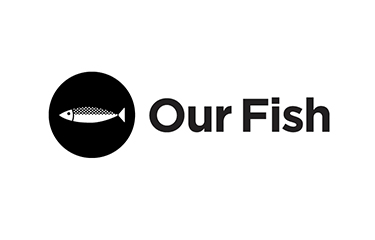A new report commissioned by the advocacy group Our Fish suggests that ending overfishing will help the oceans weather the effects of climate change.
Overfishing is weakening the oceans' ability to adapt, the report argues. Healthier oceans will better withstand the disturbances wrought be climate change.
“If you have a system that is already on its knees and then you have another pressure that is hitting it, like climate change or overfishing, that will make the stock less resilient,” Rashid Sumaila, a professor at the University of British Columbia’s Institute for the Oceans and Fisheries and lead author of the report, said during a webinar on 2 September organized by Our Fish. “If you are very healthy, you have more ability to withstand the stress.”
Our Fish aims to end overfishing, and is working to ensure that European member states implement the Common Fisheries Policy to achieve sustainable fish stocks.
Sumaila described how warming ocean waters are causing marine species to migrate to higher latitudes, and how increasing sea temperatures are slowing growth for certain fish species; inhibiting reproduction and potentially threatening their very survival. Shifts in various seasonal events, such as the formation of the zooplankton biomass in the North Sea, have already been observed.
Overfishing also threatens the health of the marine ecosystem, Sumaila said, especially as large species are removed from the food web. Those stressors make fish stocks even more vulnerable to climate change.
“As time goes on, we are taking a lot of the big fish, the high trophic species, the high value species,” Sumaila said. “The population is being depleted and the food web is being truncated.”
Many European fish stocks are already stressed. The report notes that in the Northeast Atlantic, 40 percent of fish stocks are fished unsustainably, while 87 percent of stocks in the Mediterranean and Black Seas are fished unsustainably.
The report bolster’s Our Fish’s argument that European countries aren’t moving fast enough to implement the Common Fisheries Policy, which aims to achieve high long-term fish catches and end overfishing by implementing policies that follow maximum sustainable yield. Countries do not seem likely to meet a 1 January, 2020, deadline to implement maximum sustainable yield policies.
“E.U. progress to end overfishing is far too slow to meet the deadline of 2020, and it is out of step with both the laws that demand it, and the public expectations for sustainable management and ocean protection,” Rebecca Hubbard, program director at Our Fish, told SeafoodSource.
At the end of August, the European Commission issued a proposal for 2020 catch limits for commercial stocks in the Baltic Sea that NGOs, including Our Fish, criticized for failing to set sustainable limits.
The proposal would increase fish opportunities for herring in the Gulf of Riga and maintain levels for salmon in the Gulf of Finland. For the remaining stocks covered by the proposal, the Commission proposed decreasing fishing opportunities. Fishery ministers will vote on the proposal in October.
“The Commission’s proposal should not only mandate sustainable fishing limits, but aim to deliver healthy fish populations by 2020, as demanded by EU regulations. Instead they have failed to propose the rapid action that is needed to lift the Baltic Sea out of the full scale ecological crisis it is experiencing,” Oceana Europe Policy Advisor Andrzej Białaś said in a statement.
There are several ways to end overfishing, Sumaila said during the webinar, including improving fishery management at the national, regional and global levels, tamping down illegal fishing, creating marine reserves and doing away with harmful fishing subsidies.
The USD 35 billion (EU 39.1 billion) that is doled out to fishermen in subsidies every year often encourages destructive fishing practices, with most of the money — 84 percent — going to large-scale fishermen.
The politics of fishing suggest that subsidies won’t decline in the face of climate change, Sumaila added.
“If climate change takes down the fish stock, given the political clout of the fish sector in many of these countries, (subsidies) will go up, which is the opposite of what needs to be done,” Sumaila said.
But certain changes to fishing policy could lower net emissions from the fishing sector. For instance, net emissions will decline if fishing gears that are most associated with the higher levels of greenhouse gas emissions are retired. Additionally, allowing marine biomass to increase in the oceans would also sequester some carbon, Sumaila said.
Sumaila and his co-authors hope to publish the report in a peer-reviewed journal later this year.
Photo courtesy of Our Fish.







